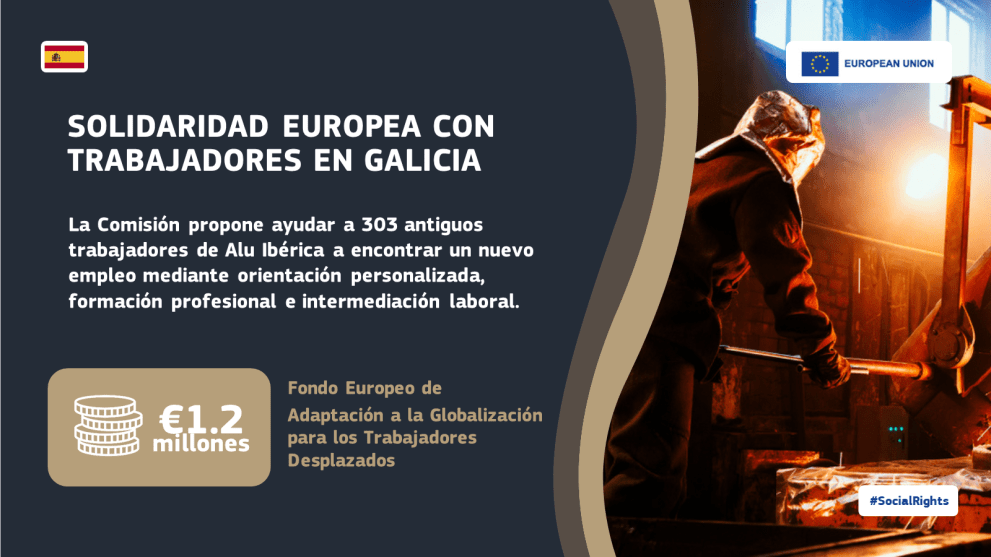303 former employees of aluminium producer Alu Ibérica in the Galicia region in Spain should receive €1.2 million in EU aid after the company declared bankruptcy.
On Monday, the Committee on Budgets approved Spain’s request for support from the European Globalisation Adjustment Fund for Displaced Workers (EGF). MEPs acknowledged that “the COVID-19 pandemic and the Russian war of aggression against Ukraine have reduced economic competitiveness across the Union, including in Spain”, adding that “the margins of the enterprises in Spain and their competitiveness have furthermore been reduced by the current rise in inflation, in particular the higher prices of raw materials and energy.”
These high prices and downward pressure on world prices of aluminium resulting from production overcapacity in China contributed to Alu Ibérica’s bankruptcy. MEPs underline the significant impact of the company’s closure on the local labour market and economy of A Coruña, a city that has been marked by a high unemployment rate well exceeding the EU average.
Workers from disadvantaged age group
The displaced workers will need additional support to find new employment in the regional labour market, taking into account that 35% of them are aged 45 or over and may experience additional challenges in finding employment. This age group makes up 60% of the registered job seekers in A Coruña.
The funding will help former employees find new jobs through actions such as information services and preparatory workshops, occupational guidance, training, intensive job-search assistance and tutoring after reintegration into work. The total estimated cost of these measures is about €1.5 million, of which the EGF will cover 85% (€1.2 million). The Galicia Region in Spain will finance the remaining 15% (€225,000).

The European Commission proposed €1.2 million to support 300 dismissed workers in Spain |
Next steps
The draft report by rapporteur Eider Gardiazabal Rubial (S&D, ES) recommending that Parliament approve the aid was passed by 36 votes, 1 against and no abstentions. Approval by plenary is expected during the 8-11 May plenary session in Strasbourg.
Background
Under the EGF regulation 2021-2027, the Fund supports displaced workers and self-employed people who have lost their activity. EGF support is more easily available for people affected by restructuring: all types of unexpected major restructuring events can be eligible for support, including the economic effects of the COVID-19 pandemic and Russia’s unjustified invasion of Ukraine, as well as larger economic trends like decarbonisation and automation. Member states can apply for EU funding when at least 200 workers lose their jobs within a specific reference period.
Overall, since 2007, the EGF has made available €690 million in 176 cases, offering help to more than 168 000 people in 20 member states, according to the Commission. EGF-supported measures add to national active labour market measures.
Source: European Parliament







Leave a Reply